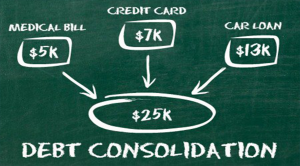Understanding Greece’s Financial Woes In a Nutshell
Just about everyone is affected on some level by Greece’s financial woes, and if you…
Just about everyone is affected on some level by Greece’s financial woes, and if you want to continue to grow your financial education, you have to stop and understand exactly why Greece is in such a bad financial state. Here are a few things that you need to know about Greece’s financial problems in a nutshell.
First off, there are serious consequences in play for Greece. The IMF (International Monetary Fund) has offered another bailout, but it comes at a price: other countries in the eurozone must agree to debt relief. Considering that these are the same people that Greece owes right now, this is a tough pill to swallow. Greece’s leaders met with their credits in Brussels back on July 13th, trying to come up with solutions to stay in the EU.
19 nations form the basis of the European Union, and all of these countries are running on a single currency. The zone is monitored closely by the European Central Bank, but each country gets to handle their own budget and tax policy. This can have some negative consequences, like the consequences that we’re seeing play out in Greece right now.
The problem here is that Greece is spending a lot more money than what they’re making. This means that Greece has to figure out how to get in more money, trim down expenses, and get things back in order for the good of the people.
But here’s an interesting question: what if Greece just decided to leave the EU entirely? Would that make everything go away? Clearly, there is no clean getaway for Greece. If Greece leaves the EU, European officials have created safeguards that can keep the collapse from affect other nations. Greece would have total financial control over its country again, something that many long for. Yet a united Europe is something that far too many people believe is necessary for the good of the entire European Union, so Greece pulling the dreaded “Grexit” does not sound likely.
Default is a part of economics, and an even bigger part of the free market. When money is borrowed from a country, that country giving out the money has to look at whether or not it’s likely that Greece will be able to make good on their debts. Unfortunately, the island nation does not have a good track record of being able to handle their debts.
Some have wondered where the bailout money from previous rounds of funding has gone. Instead of flowing into the country, this bailout money is actually going to the outstanding loans owed. This keeps the economy from growing. It is estimated that Greece currently has a 25 percent unemployment rate. As you can imagine, this leads to a very low morale and wide scale panic.
Who owns the outstanding debt Greece is facing right now? Well, 63 billion Euros is completely private debt, while the bailout primarily comes from Germany, France, Italy, and Spain. The IMF and ECB have 24 billion and 27 billion Euros invested, respectively. This is a 320 billion debt package that is choking the life out of Greece.
It’s also touching off a real estate firesale, where even entire islands are now up for sale. It’s a developer’s dream and a country’s worst nightmare all at the same time.
It’s too soon to say what will ultimately happen to Greece, but it’s fair to say that things are definitely due for a change.







